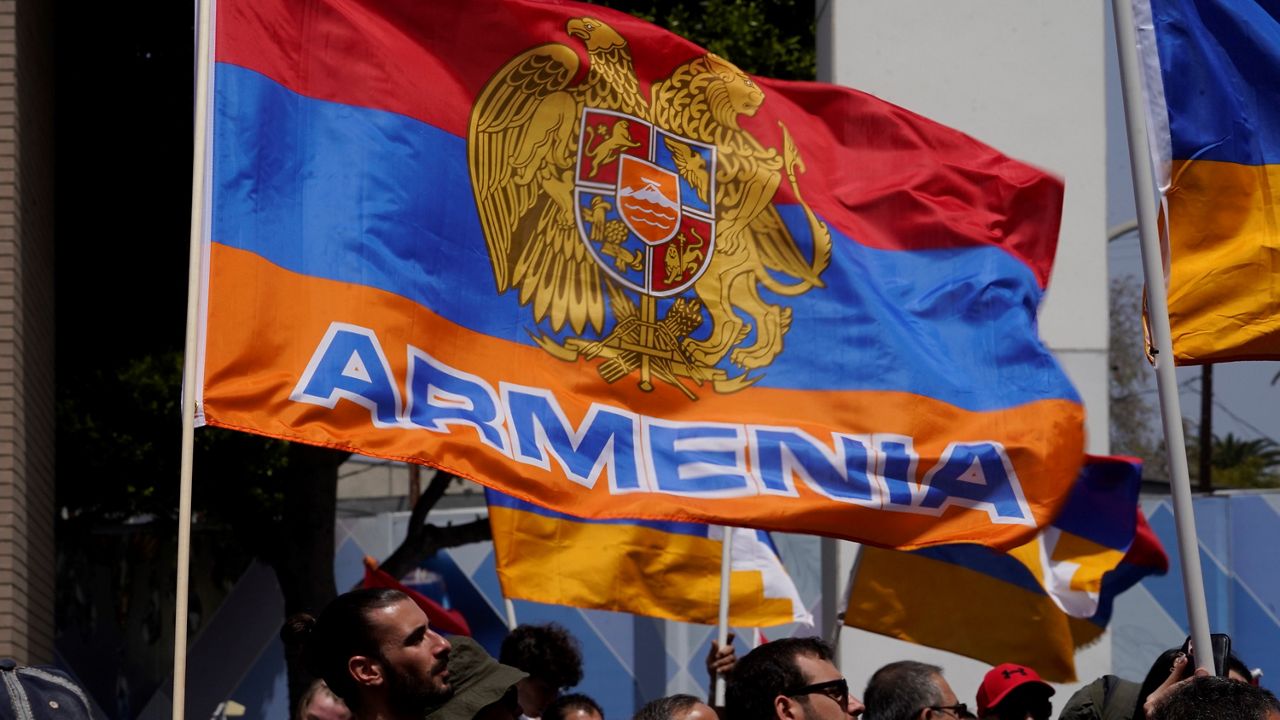COMMERCE, Calif. — Working indoors during a pandemic might make some people uncomfortable, but Kevin Caceres said he doesn’t mind. He’s giving his time to help out at the Los Angeles Regional Food Bank’s massive warehouse facility in Commerce.
“I just follow the guidelines and I social distance as much as I can,” Caceres said. “I wash my hands and sanitize as much as possible.”
Caceres started volunteering in June as part of his Americorp internship, packing and handing out food kits that go to 22,000 families a week across the greater Los Angeles region. Caceres, who graduated from UCLA in December, grew up in Lynwood and said he saw firsthand the issues facing underserved communities, including food insecurity.
“It’s really satisfying in my opinion, to help others in need,” Caceres said. “I also want to be a doctor in the future, so I feel like getting this experience is going to help me in the future to become a great health professional.”
About two dozen strangers were volunteering along with Caceres, but as few as five people have shown up in the past. Since the pandemic, the food bank has lost 90 percent of its volunteer base, which were mostly groups of corporate employees.
Ana Martinez, the volunteer coordinator for L.A. Regional Food Bank, said she’s seen a 125 percent increase in demand for food from struggling families.
“Some of them have never gone to a food distribution because they [didn’t need] food assistance,” Martinez said. “However, because of the times, they may be having shorter hours, furloughed, they got laid off.”
Martinez said the food kits can last a family of four about two to three weeks and include a protein, fresh produce, shelf-stable foods such as pasta and dairy products. All the food must be assembled into boxes before it’s handed out.
Since the beginning of April, 60 California Army National Guard members have helped assemble over one million emergency food kits.
“Without them, I really don’t know where we would be at this point,” Martinez said, adding that many of the guard members have been deployed to other assignments over the past few weeks, and that only 20 remain.
With a dwindling volunteer pool, Martinez said she worries about assembling enough kits to get through the holidays as she expects even more people will need food. There are some regular volunteers but Martinez said people are reluctant to help out in the warehouse for fear of exposure to the coronavirus. The food bank is following CDC guidelines in protecting volunteers and staff against the coronavirus, and that includes temperature checks, following social distancing guidelines, and wearing personal protective equipment.
Caceres said he loves helping out even a fraction of the families.
“They tell you the number of boxes you made at the end of the day," Caceres said. "You made like, 1,500 boxes, and so that will impact 1,500 families, and that makes you feel really good about it.”











